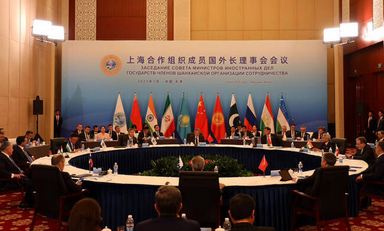As the Shanghai Cooperation Organisation (SCO) prepares to convene its annual summit in China starting August 31, global attention is turning toward the strategic ambitions and diplomatic choreography of its key member states. With leaders from China, Russia, India, Pakistan, and Central Asian nations expected to attend, the summit promises to be a pivotal moment for regional dialogue, economic collaboration, and security coordination.
China, as this year’s host, is expected to showcase its leadership within the SCO framework by emphasizing connectivity, trade, and multilateralism. The summit will be held in the historic city of Xi’an, a symbolic nod to the ancient Silk Road and a modern reminder of China’s Belt and Road Initiative (BRI). Beijing is likely to push for deeper integration among member states, particularly in digital infrastructure, energy cooperation, and counterterrorism efforts.
For Russia, the summit offers a platform to reinforce its eastern partnerships amid ongoing tensions with the West. Moscow is expected to advocate for a multipolar world order and promote regional security mechanisms that bypass Western institutions. President Vladimir Putin’s presence will underscore Russia’s commitment to the SCO as a counterbalance to NATO and the EU, while also seeking economic opportunities through Eurasian connectivity.
India’s participation will be closely watched, especially given its complex relationships with both China and Pakistan. Prime Minister Narendra Modi is likely to focus on economic cooperation, counterterrorism, and regional stability. While India remains cautious about China’s growing influence in the SCO, it views the organization as a valuable forum to engage with Central Asia and assert its strategic autonomy.
Pakistan, a full member since 2017, sees the SCO as a vital platform to advance its regional interests. Islamabad is expected to highlight its contributions to peace and stability in South Asia, while advocating for enhanced trade and connectivity. The summit may also provide an opportunity for Pakistan to engage in backchannel diplomacy with India, although formal bilateral talks remain unlikely. Pakistan’s alignment with China and its growing ties with Russia could further shape its role within the SCO.
Despite underlying rivalries and divergent national interests, the SCO summit carries hopes for pragmatic cooperation. While the SCO is not without its limitations—particularly in resolving bilateral disputes—it remains one of the few multilateral platforms where adversaries like India and Pakistan, or China and India, can engage under a shared framework.
As the summit unfolds, observers will be watching for signs of consensus, new initiatives, and potential breakthroughs in regional diplomacy. Whether the SCO can evolve from a dialogue forum into a more action-oriented bloc remains to be seen. But with the world increasingly shaped by regional alliances, the August 31 summit in China could mark a defining moment for Eurasian cooperation in the years to come.

















